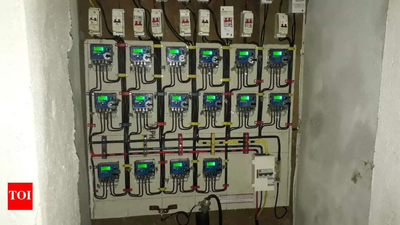Independent floors eligible for separate domestic electricity connections, rules Tamil Nadu Electricity Ombudsman | – The Times of India

CHENNAI: A building with independent floors and dwelling units cannot be denied individual domestic electricity services, the Tamil Nadu Electricity Ombudsman reiterated, citing the Tamil Nadu Electricity Regulatory Commission‘s 2022 tariff order.
Amidst rising complaints of the state power distribution corporation (TNPDCL) denying separate service connections to different floors of the same building in the name of a single owner, the ombudsman quashed the order of a consumer grievance redressal forum. The forum had justified the virtual merger of two domestic services in the same building in Nagercoil and directed the licensee (TNPDCL) to continue separate billing of electricity consumption.
TNPDCL officials last year virtually merged two domestic services of I John Bosco for different floors after a physical inspection, claiming that both services were enjoyed by the same family. John Bosco approached the consumer grievance redressal forum in Kanniyakumari, but it upheld the decision of the TNPDCL as the merger was done as per the TN electricity distribution code. It cited Section 27(15A), which says a person is eligible for one service connection in a premises.
Aggrieved by the order, John Bosco appealed before the Ombudsman. He argued that he lives on the ground floor with one of his two sons, while the other son occupies the first floor with his family. He said that the CGRF ignored the submissions that both dwelling units are physically segregated with independent entries from the main gate, apart from separate kitchens, bathrooms, and toilets for both floors.
He also said that both his sons have separate family cards, but the CGRF confirmed the virtual merger of two services, overlooking the submissions. Even as the TNPDCL justified the merger, the ombudsman drew its attention to the TNERC‘s 2022 tariff order and said that even when the independent status of a dwelling unit is not evident in a building, a lease agreement may be insisted upon for a separate connection or separate family cards in the case of the same family members living in different dwelling units of the same building.
Stating that it is evident that the houses are completely segregated from each other since they have separate property taxes and citing the fact that the occupants are not part of the same family card despite being relatives, the ombudsman quashed the CGRF order and instructed TNPDCL to continue separate billing of power consumption, binding it for compliance within 30 days from the date of the order.
















